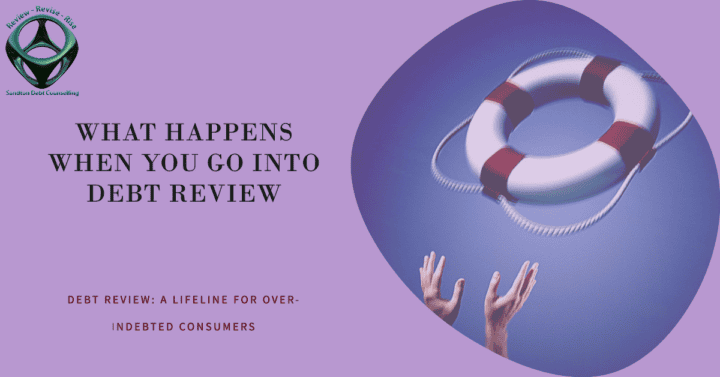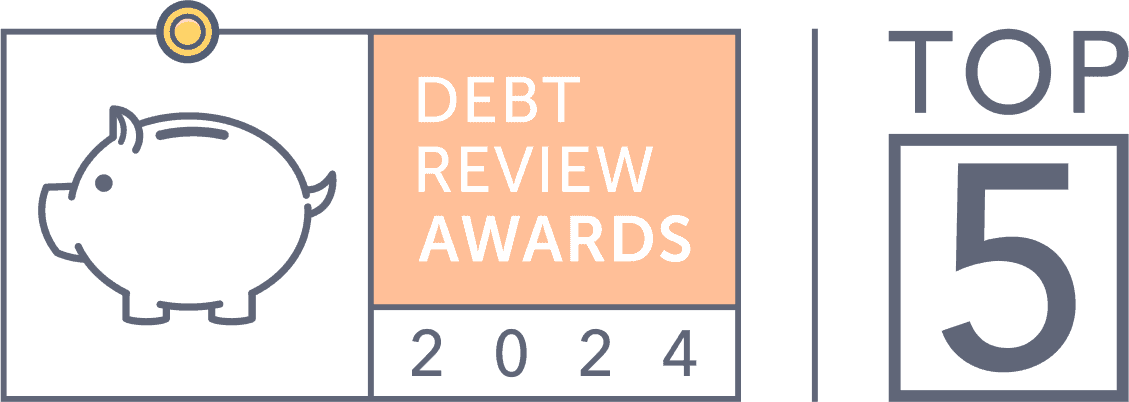
What Happens When You Go into Debt Review
Understanding what happens when you go into debt review is crucial for anyone considering this option to manage their financial difficulties. Debt review or debt counselling is a formal legal process that was created to assist South African consumers who cannot make ends meet.
The process is written into the National Credit Act (NCA) of South Africa and Regulated by the National Credit Regulator (NCR). The goal is to provide a more structured way for consumers to manage and pay back their debts responsibly and avoid legal action.
What is Debt Review
The Debt Review Process
There are numerous steps in the process, but we will cover the key steps here. For a more in-depth article, you can have a look at this post.
- Application: The process begins when you apply for debt review through a registered debt counsellor. You will need to provide information about your monthly income, living expenses, and confirm all the debts you owe. The debt counsellor will obtain a list from the credit burau to help you.
- Assessment: The debt counsellor will assess your financial situation to determine if you are over-indebted. Should you be over-indebted, which means, your monthly expenses outweighs your income, the debt counsellor will present you with an interim payment plan which you could accept or decline. If you do accept this payment plan, you will be placed under debt review.
- Negotiation: As soon as you are under debt review, the debt counsellor will contact your credit providers and request them to send all the details of every account you have. This will assist the counsellor to negotiate a new repayment plan with lower or no interest rates, on your behalf. This is aimed at reducing your monthly debt repayment amount to free up that much need cash.
- Repayment Plan: Once negotiations are successful, the debt counsellor will restructure your debt into a new consolidated repayment plan. This plan will need to be approved by all your creditors.
- Legal Protection: Upon the restructuring of your debts, the debt counsellor will apply to a magistrate's court to have the new repayment plan made into a court order. This legal protection further protects you and prevents creditors from claiming assets or funds while you are under debt review.
- Payment: You will make a single monthly payment to a payment distribution agency (PDA), at Sandton Debt Counselling, we use Hyphen PDA. which will then distribute the funds according to the agreed-upon plan.
- Completion: Once all the short term restructured debts are paid off, the debt counsellor will issue a clearance certificate, and you will be removed from debt review. This certificate also instructs credit bureaus to remove the debt review status from your credit profile.
Benefits of Debt Review
- Single Payment: Instead of multiple payments, you make one consolidated payment each month.
- Reduced Payments: Negotiations by the debt counsellor often result in reduced monthly payments.
- Legal Protection: Creditors cannot take legal action against you while you are under debt review and making regular payments.
The cons of debt review
- Access to Credit: While under debt review, you cannot access additional credit. This restriction is intended to prevent further debt but can limit financial flexibility.
- Long-Term Commitment: Debt review can extend the period over which you pay off your debts, potentially resulting in higher total interest costs over time. The latter will only be true if the debt counsellor does not reach an interest rat concession, which is rare.
What Happens When You Go into Debt Review and Miss Payments
It is always advised to contact your debt counsellor if you think you might not be able to pay an instalment. Skipping debt review payments in South Africa can have severe consequences. If you miss payments, creditors could terminate the agreement and revert to original credit terms. This can lead to increased financial strain and potential legal action from creditors, including asset repossession. It's crucial to maintain regular payments as agreed in the debt review process to avoid these outcomes and continue working towards financial stability
Final Thoughts:
Debt review is a valuable tool for those struggling with severe debt, offering a way to manage repayments and avoid legal action taken against them. However, it requires commitment and discipline to stick to the new repayment plan. For those considering this option, it is crucial to work with a reputable and registered debt counsellor and to fully understand both the benefits and the limitations of the debt review process. This approach ensures that you can make an informed decision that aligns with your long-term financial health and goals.
